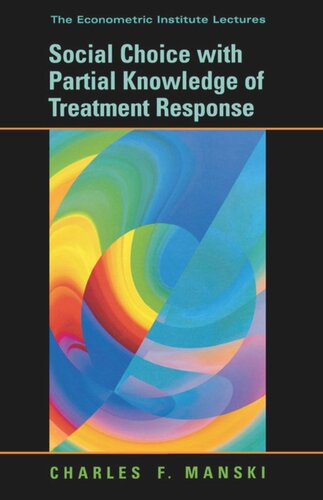

Most ebook files are in PDF format, so you can easily read them using various software such as Foxit Reader or directly on the Google Chrome browser.
Some ebook files are released by publishers in other formats such as .awz, .mobi, .epub, .fb2, etc. You may need to install specific software to read these formats on mobile/PC, such as Calibre.
Please read the tutorial at this link: https://ebookbell.com/faq
We offer FREE conversion to the popular formats you request; however, this may take some time. Therefore, right after payment, please email us, and we will try to provide the service as quickly as possible.
For some exceptional file formats or broken links (if any), please refrain from opening any disputes. Instead, email us first, and we will try to assist within a maximum of 6 hours.
EbookBell Team

4.1
70 reviewsEconomists have long sought to learn the effect of a "treatment" on some outcome of interest, just as doctors do with their patients. A central practical objective of research on treatment response is to provide decision makers with information useful in choosing treatments. Often the decision maker is a social planner who must choose treatments for a heterogeneous population--for example, a physician choosing medical treatments for diverse patients or a judge choosing sentences for convicted offenders. But research on treatment response rarely provides all the information that planners would like to have. How then should planners use the available evidence to choose treatments?
This book addresses key aspects of this broad question, exploring and partially resolving pervasive problems of identification and statistical inference that arise when studying treatment response and making treatment choices. Charles Manski addresses the treatment-choice problem directly using Abraham Wald's statistical decision theory, taking into account the ambiguity that arises from identification problems under weak but justifiable assumptions. The book unifies and further develops the influential line of research the author began in the late 1990s. It will be a valuable resource to researchers and upper-level graduate students in economics as well as other social sciences, statistics, epidemiology and related areas of public health, and operations research.